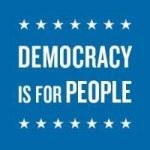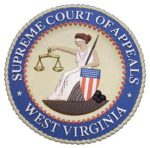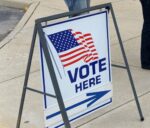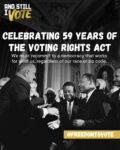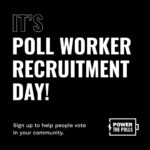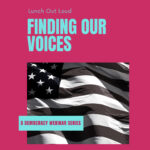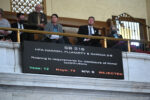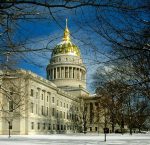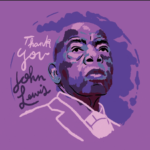For more information:
Dennis Sparks 344-0000
Julie Archer 346-5891
At its Legislative Interim meeting in Charleston on Monday (February 7), the Select Committee on Campaign Finance Reform Committee recommended passage a pilot project to provide full public financing to legislative candidates who agree to limit their spending and reject all private donations. This voluntary system is modeled after laws in Maine and Arizona, where it is now the political norm to run for office free of direct dependence on private campaign contributions. The recommendation was applauded by Citizens for Clean Elections, a coalition of 27 organizations which supports the concept of providing full public financing for candidates who agree to limit spending and take no money from private sources. Members of the coalition include, but are not limited to the WV Council of Churches, WV Education Association, WV Environmental Council, WV Interfaith Center for Public Policy, AARP (West Virginia), Affiliated Construction Trades Foundation, AFL-CIO (WV), American Association of University Women (Charleston), National Association of Social Workers Association-West Virginia.
The Reverend Dennis D. Sparks, Executive Director, West Virginia Council of Churches said his organization promotes a Christian witness on public policy issues and has chosen the reform of financing of elections for state and legislative offices in West Virginia as its number one public policy priority for 2005. . “Public financing will help restore citizen confidence in government decision-making. The proposed reform focuses on public financing of elections, freeing our Legislature to be informed, to listen to their voter constituency, and to search their own conscience,” said Sparks. “The Council of Churches supports the proposed pilot project for campaign financing, or what I would call the ‘freedom bill’ – freeing our Legislature to be informed, to listen to their voter constituency, and to search their own conscience, as well as other measures that require stricter accountability of campaign finances.“
The Joint Committee on Government and Finance appointed the Select Committee, requesting a study on the projected costs and potential sources of revenue which may be made available to support a plan to provide public campaign finances for designated elected offices. Members of the Campaign Finance Reform Committee include Senator Truman Chafin, Co-Chair; Senators Karen Facemyer, Jon Blair Hunter, and Mike Oliverio; Delegate Timothy Ennis, Co-Chair; Delegates Mike Caputo, John Doyle, Greg Howard, Virginia Mahan, Dave Pethtel, and Patti Schoen. The committee recommended the pilot project unanimously.
The committee also recommended legislation to make statewide and legislative elections comply with the federal Bipartisan Campaign Reform Act, or McCain-Feingold law, which prohibits the use of “soft-money” in election related communications. The legislation is intended to reign in 527 organizations and would prohibit corporations from financing “issue ads” that target candidates shortly before a state election and would require significant levels of disclosure from the sponsors of an electioneering communication that names a candidate but has previously escaped regulation by stopping short of expressly advocating the candidate’s election or defeat.
This legislation would also limit contributions to 527 groups that attempt to influence the outcome of statewide or legislative races to $1,000 during any election. West Virginia already has limits on contributions to candidate committees, political action committees (PACs) and state party committees.
-END-

